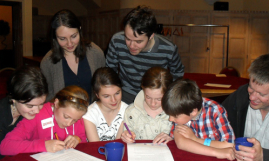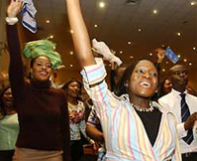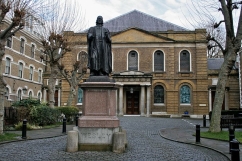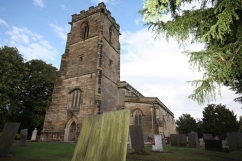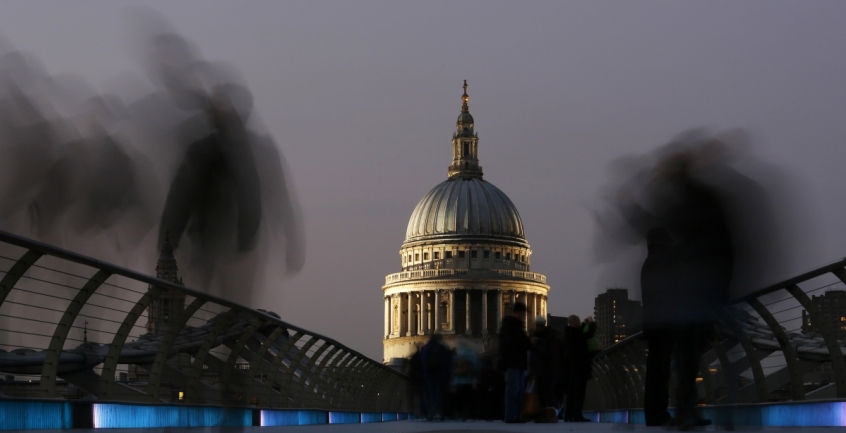
It was the decade that saw Richard Dawkins and the new atheists proclaim loudly and triumphantly the non-existence of God.
Yet despite the best efforts of the anti-theists, thousands upon thousands more people are choosing to worship at England's cathedrals.
Between 2003 and 2013, attendance at services held during the week doubled from 7,500 to 15,000 and even Sunday attendance rose slightly.
Overall the number of adults worshipping in cathedrals rose by nearly a third, from 23,100 adults in 2003 to 30,900 in 2013. Numbers of children also increased slightly overall, from 6,300 to 6,900.
On Sundays, adults attending services rose from 15,600 in 2003 to 15,900 in 2013.
Two of the biggest annual rises in cathedral worship took place between 2005 and 2007. Dawkins' The God Delusion was published in 2006.
The Church of England said that research showed the highest motivating factors for going to church in a cathedral were "peace and contemplation, worship and music and friendly atmosphere".
More than 1,000 people attended each of the 42 cathedrals on average on Easter Day, with total numbers at a cathedral service that day in 2013 up to 53,300 from 48,200 in 2003. Attendance at Christmas cathedral services also rose from 117,200 in 2012 to 124,300 in 2013 alone, with many cathedrals putting on extra services to cope with the demand.
The one area of significant decline that will be of concern to music directors is in the number of boy choristers, down from 870 in 2003 to 780 in 2013. Research has shown boys' voices are changing earlier. The slack has been taken up by girl choristers as more cathedrals introduce them, up from 540 in 2003 to 650 in 2013.
The Dean of Lichfield, Adrian Dorber, said in a podcast that he had witnessed the need for people wanting a short snatch of peace midweek in what are now very pressurised lifestyles. "At the weekend you've got commitments with children doing sport, shopping, household maintenance - life's run at the double these days and weekends are very pressurised and committed. Taking out half an hour or an hour every week is much more negotiable."
The Dean of York, Vivienne Faull, one of the favourite women clergy to become a woman bishop, said: "We do have the opportunity of allowing people to come in from the edges. If I take a eucharist at 12:30 in the middle of the week in the nave of York Minster there'll be a lot of people who just slide in from the side. It's not so much about anonymity, there's the feeling there's a journey you can travel which doesn't require huge steps - it just requires one little step."
Stephen Lake, Dean of Gloucester, said: "Patterns of church attendance are different now. Cathedrals are uniquely placed to be providing greater opportunities for worship and that includes during the week."










